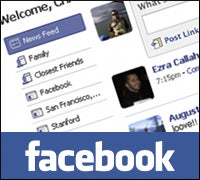 |
After opening the floodgates to its highly-anticipated vanity URLs, Facebook has converted the addresses for millions of its users from a random string of numbers to a personalized Web address.
Facebook opened its username registration page at 12:01 ET Saturday morning, and doled out more than 500,000 user names in 15 minutes, according to Facebook spokesman Larry Yu. Through Sunday, more than 5.7 million Facebook users had claimed personalized URLs.
“It’s rewarding to see the level of excitement about getting a Facebook username,” Yu told InternetNews.com. “It goes to show just how connected Facebook has become to people’s sense of identity.”
The new URLs, which will read “Facebook.com/UserName,” instead of ending “id=123456789,” gave rise to a flurry of speculation about how the world’s largest social network would be able to pull off this land grab.
By all accounts, Facebook did pretty well. Yu said there hadn’t been “any significant glitches to speak of,” though a fair share of users got beat to the punch.
TechCrunch blogger Michael Arrington, for instance, noted in his Twitter feed that the logical variations of his name were unavailable, so he “decided not to be marrington1 for the rest of my life on fb.”
And he’s not kidding. In a blog post, Facebook designer Blaise DiPersia advised users to “Think carefully about the username you choose. Once it’s been selected, you won’t be able to change or transfer it.”
Facebook is billing the new feature as a path to a personalized home page, complete with all the search-engine rewards a human-readable URL entails. A Facebook page with a personalized URL will be far more likely to rise to the top of a results page for a simply search query of the person’s first and last name.
There has been considerable speculation that the personalized URLs are the latest tactic in Facebook’s quest to beat Twitter at its own game.
“With vanity URLs, it’s now getting into the name space business, something Twitter really excels at,” GigaOm’s Om Malik posited.
Facebook’s latest iteration also closely follows its redesign that put real-time status updates front and center on the home page, a move that was widely seen as a direct response to the soaring popularity of Twitter (a company that Facebook tried, and failed, to acquire last year).
While the land grab for personalized URLs has gotten off to a fairly non-controversial start, Facebook could be in for some headaches down the road.
Branded URLs — on Facebook, Twitter or the Web at large — invariably raise the possibility of cybersquatting. At ICANN, the organization responsible for assigning Internet names, legal challenges against people using a trademark in a domain name are a chronic issue. Earlier this month, St. Louis Cardinals manager Tony LaRussa (who happens also to hold a law degree) settled a lawsuit with Twitter over an impostor posting under a profile with his name and image.
Legal experts have suggested that Facebook could be headed down a similar road with its new personalized URLs. The social network, with more than 200 million users worldwide, has taken some steps toward preventing the problem.
Before throwing the URLs open to the public, Facebook had a trademark submission period to compile a registry of URLs that would be unavailable. The submission period has closed, but Facebook has since set up a form for users to contest someone else’s registration if they feel it infringes on their intellectual property.


